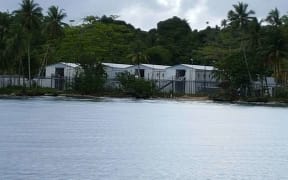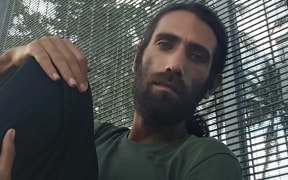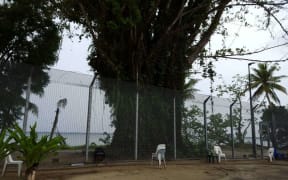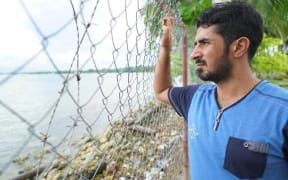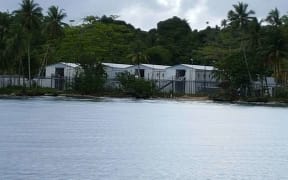As pressure mounts on refugees to leave the Manus Island detention centre, legal experts warn Australia could be flouting international law.
After four years of imprisonment in Papua New Guinea, asylum seekers are being returned to the countries they fled.
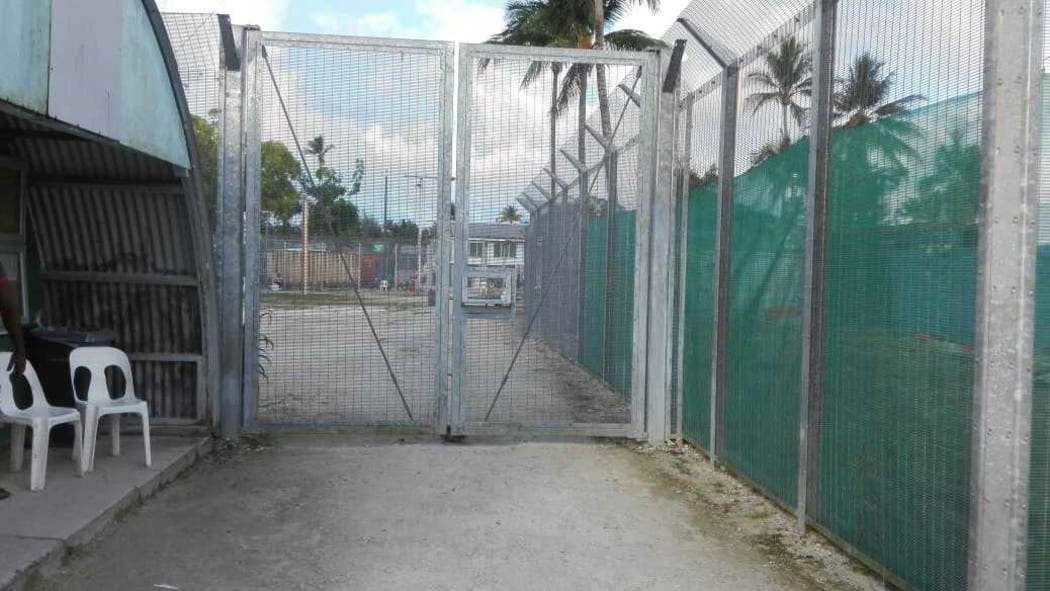
The gate to Foxtrot compond inside the Manus detention centre. Photo: Refugee Action Coalition
The Kurdish journalist and detainee Behrouz Boochani said conditions continued to be deliberately degraded in the Australian run centre as its October closure date drew closer.
Mr Boochani said documents exposed by the Guardian proved Australia was coercing the men to leave.
He said pressure was building on its 800-odd residents in the form of threats and overcrowding.
"Australian and PNG immigration each day call some refugees to their office and say, 'what is your plan? You have to leave here.'
"Also they want to destroy Foxtrot compound by the end of June, so all the people will go into other compounds and make it too crowded so people will have to leave."
Mr Boochani said authorities were finding new and petty ways to coerce the men into accepting repatriation or resettlement in PNG.
"Another way is by reducing what's available in the shop. Each week one item is removed from sale. And they are stopping all the activities like English classes, gym and excursions," he said.

Greg Barns Photo: ABC - courtesy of Sensible Films
"We expect they will keep finding new ways to put pressure on us."
A barrister with the Australian Lawyers Alliance, Greg Barns, said it was illegal to coerce asylum seekers to return to countries where they were persecuted, a practice known as constructive refoulement.
"Effectively it's putting a gun at their head and saying, 'you either live in these intolerable conditions or alternatively you return to the country that you came from.' And of course in many cases returning to the possibility of persecution," said Mr Barns.
"In a sense they are going back there under duress. That can amount to constructive refoulement."
About 200 Manus men denied refugee status are faced with a choice between financially assisted repatriation or forced deportation.
The president of Australia's Human Rights Commission Gillian Triggs, who is also a professor of international law, said for those men PNG's dubious immigration system had created the risk of refoulement.

Gillian Triggs. Photo: Australia Human Rights Commission
"In some cases their claim for refugee status may have been denied rightly and some have been denied it wrongly. Now those who are entitled to that status as a refugee may very well be constructively refouled, or returned to the country of persecution," said Ms Triggs.
"I think as a matter of international law, and now maybe also it seems Australian law, to have inflicted this risk is a continuing responsibility of the Australian government," she said.
"The general position of international law is that if a country like Australia has effective control over the lives of these people then it is responsible for what happens to them."
The advocate Anne Moon is raising money for Manus men to challenge their non-refugee status.
"I've been through their immigration papers and the process is quite clearly flawed. It's said to be under PNG immigration but it's under Australian guidance, I suppose you could say," said Ms Moon.
"I have a lot of medical records as well because I'm a medical advocate at the same time and it shows quite clearly the existence of former torture to a lot of these men and yet they are given a negative assessment," she said.
"Some of those people have returned. The pressure on the negatives is enormous, it's a daily thing. There are people who just say 'you know what, I'm just going to go back. My family can have the money. If I'm killed I'm killed, I don't care anymore.'"
About 2000 Manus detainees are due to share a $US53 million dollar settlement reached with the Australian government, after seeking damages for wrongful imprisonment and suffering.
But Ms Moon said the amount of money each man could receive was so low, she would not want them to devote it to legal fees.
